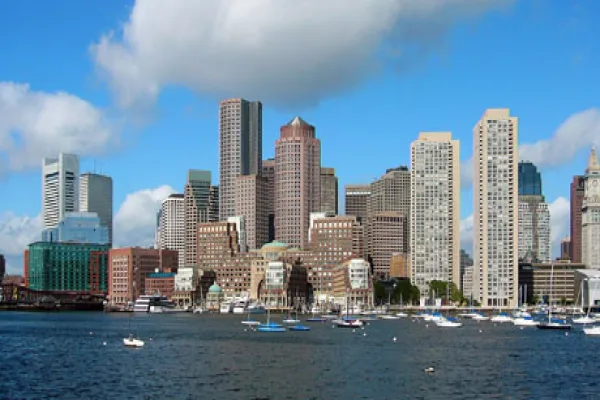He Government Of President Vladimir Putin has, many critics say, put economic reform on hold in recent years and sought to strengthen the Russian state's control over so-called strategic industries. If that's the case, somebody forgot to tell Anatoly Chubais.
The mastermind of Russia's mass privatization in the early 1990s and later first deputy prime minister, Chubais in 1998 was sent by then-president Boris Yeltsin to take charge of Unified Energy System of Russia. His task was gargantuan: Overhaul the world's biggest electric utility, a creaking system that spans 11 time zones, and prepare it for privatization. He has split the company's generating capacity into 20 entities that can be sold to investors, while leaving the national transmission grid in state hands.
After nine years of painstaking efforts, including battles with Prime Minister Mikhail Fradkov and assorted bureaucrats, and despite a 2005 assassination attempt involving a roadside bomb, Chubais is improbably close to success. Last fall the cabinet officials who dominate UES's board approved a rolling series of initial public offerings by the generating companies that will reduce the state's holding in them to a minority and attract billions in private capital. At the same time the government endorsed a five-year plan to liberalize electricity and gas prices, an essential condition for attracting private investors.
The first spin-off, an initial public offering last October of 14.4 percent of Yekaterinburg-based generating company OGK-5, was ten times oversubscribed, raising $460 million. Last month metals giant Norilsk Nickel paid $3.1 billion for 38 percent of OGK-3, whose power plants are concentrated in northwestern Russia.
Investors appear to be enthusiastic. UES shares have doubled over the past year, to $1.35, outpacing the 33 percent rise in Moscow's RTS share index. European utilities, including Germany's E.ON, Finland's Fortum, Italy's Enel and Gaz de France -- not to mention Russian oligarchs keen to secure power for their aluminum smelters or oil installations -- have expressed interest in controlling some of the 18 remaining generating companies.
Chubais still faces potential obstacles, not least of which is the 2008 presidential election. An outright rejection of energy reform by the next Kremlin boss is unlikely, particularly if Putin manages to pick his own successor. But Russian businesses, whose power costs will increase six times as prices are freed, according to Chubais's estimate, may renew efforts to sabotage price liberalization.
Chubais remains determined to finish his job, though. He met recently with Institutional Investor Contributing Editor Craig Mellow at UES's headquarters on Moscow's southern outskirts.
Institutional Investor: Everybody says Russia is retreating from a market economy, but you seem to be succeeding in pushing energy reform. How?
Chubais: I won't comment about Russia as a whole, but you're absolutely right about energy reform. All the more complicated and politically sensitive questions have been decided: division of generation from transmission, privatization of generating capacity and liberalization of prices.
Just as important for us is the market's view, as reflected in the valuations of our company. Since September 2005 the capitalization of UES has risen from $13 billion to $49 billion. That shows that our move to market principles is a driver of value.
You have said you expect to do IPOs for most UES subsidiaries this year, raising up to $10 billion. Is that realistic given the pipeline of other Russian issues?
In the fall we conducted the IPO of generating company OGK-5, and that demonstrated the practicality of our logic. The IPO was oversubscribed ten times, and the company's capitalization has risen 40 percent since then.
For the next stage we are looking at about 17 IPOs, raising closer to $15 billion than $10 billion. If market demand begins to fall off, naturally we will delay to some extent. Some of the IPOs will end with investors owning more than 50 percent; some will require a capital increase later.
What will be the impact of price liberalization?
By January 1, 2011, energy prices in Russia will be 100 percent liberalized. Today average prices are 15 to 16 percent of market levels. The government has released a plan for step-by-step increases every half year, except for retail customers. The general population will still be subsidized.
Who do you think will be the final owners of these assets: foreign companies or Russian oligarchs?
I see the owners as being both strategic and financial investors, and among both groups there should be both Russians and foreigners. I just left a meeting with one of our strategic investors, Vladimir Potanin [the billionaire owner of Norilsk Nickel and Rosbank], who owns 2 to 3 percent of UES and share packets of some of our future divested companies. There are others who own shares in UES and have said they intend to bid for the new spin-offs: Siberia Coal and Energy Co., headed by [Vladimir] Rashevsky; Gazprom, which with our support will be the strategic investor in Mosenergo [the Moscow utility]; [aluminum producer] SUAL; Lukoil.
Could Gazprom's role represent a risk for investors?
It will be the major provider of fuel for the power sector but also a competitor.
The market will be structured in such a way that no single generating company can become a monopolist in any region. Just for this reason we created 14 territorial generating companies and six wholesale generating companies [whose assets overlap the territorial companies]. At the same time, the emerging market in electric power will demand a very serious deepening and strengthening of antimonopoly regulation, and this will certainly happen.
If you are talking about Gazprom's selling gas to itself at one price and to other power companies at another, then I think the government's November 30 decision on gas prices will have a very healthy effect. For the first time, it sets open, transparent gas prices for the next five years. This is a global improvement in the market.
So what delayed these sensible decisions for so long? Why are they being adopted now?
Our best argument has been the growing deficit in Russia's energy complex. [Utilities, which generate both heat and power, have had to curtail electricity supplies to industry during winter cold snaps.] This is a new factor, and it forced the government over to our side at last.
Can liberalization proceed fast enough to cover that energy deficit?
No, it won't go fast enough. Today we already have a deficit in a number of regions: [oil production center] Tyumen, Moscow, [metals-producing region] Sverdlovsk. We won't make up for it tomorrow. But we already have investment programs over the next three to four years, and they are quite large -- $18 billion in Moscow alone. Of course, it would have been better if we had started investing earlier, but for that we needed to complete reform.
Where will the money come from to finance this investment?
From the market. Our five-year cap-ex program for 2006 to 2010 in the whole power system of Russia comes to $118 billion: $50 billion in the transmission network and $68 billion in generation. As we said, IPOs of the generating companies will raise at least $10 billion and probably closer to $15 billion. Then there is leverage.
We have solved the problem of attracting capital into the energy sector. We will get as much investment as we need. Our main problem is creating a contemporary, civilized infrastructure for using the investment: production of machinery, construction, project design, engineering. We need to create all those sectors with that $15 billion.
Will the elections for the Duma this December and the presidency in March 2008 affect privatization?
Whatever new political cycle comes in 20072008, and whoever becomes president, the country will still need light and heat. The new leader would have to be a complete lunatic to wreck this process of investment. Besides, I don't anticipate any big political disturbances connected with the coming presidential elections.
Many observers in the West believe Russia is retreating from democracy. What do you think about this?
Russia's democracy is of course younger and more vulnerable than other developed countries'. But I can't agree with people who say that there is no democracy in Russia. Despite all our complications and weaknesses, the most fundamental elements of contemporary civilized culture do exist: real constitutional processes, an independent press, private property and a market economy.
If and when energy reform is completed, UES will no longer exist. What are your plans?
I don't know, but I certainly won't go back into politics.





